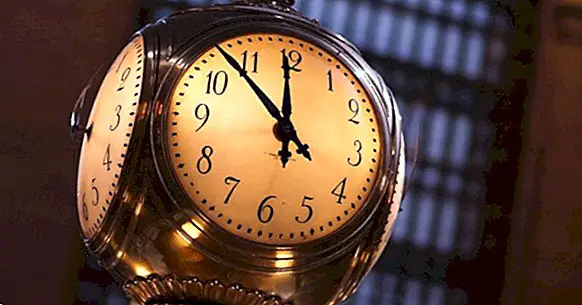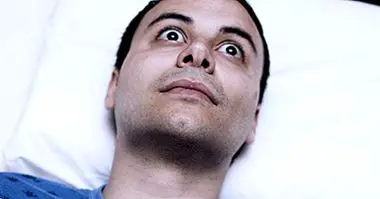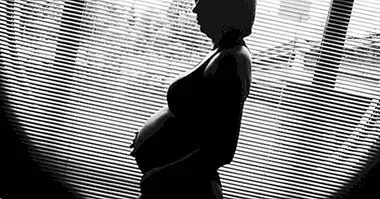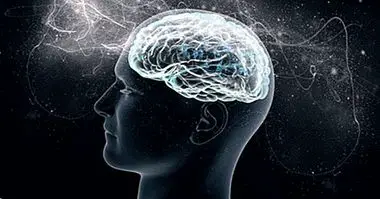Chronophobia (fear of the passage of time): causes, symptoms and treatment
All of us, over the years, become older . As time goes by, we accept that we can not do anything to change this situation. However, some people experience the irrational fear of aging, which is known as gerontofobia or gerascofobia, because they suffer great anxiety in the face of physical changes and the consequences for a person has to reach old age.
However, other individuals experience great fear over time, something that causes great discomfort. This phobia is called chronophobia, and in this article we will know its characteristics, its causes, its symptoms and its treatment.
- Compilation of famous quotes about time
What is chronophobia
Chronophobia is a specific phobia and, therefore, an anxiety disorder . It is an irrational fear that creates great discomfort and anxiety for the person who suffers, who tends to avoid phobic stimulation in an attempt to reduce the negative symptoms associated with this disorder.
According to experts, elders and people in jail experience it more frequently. In this last case, it has been coined as "neurosis of prisons".
As for the elderly, they are close to the end of their lives and may experience high levels of anxiety over time, which may make them feel that time is running out and they experience strong fear, anxiety and anguish.
Chronophobia can cause a significant and serious alteration to the life of people who suffer it, since they are constantly in contact with the phobic stimulus, that is, the element they fear. No one can stop the time, so this phobia can develop anytime and anywhere. When anxious responses appear, it is difficult for the person to avoid the feared situation.
Causes of this phobia
The causes of this phobia are not clear, since the phobic stimulus that the elicita is somewhat more complex and abstract than other specific phobias, such as fear of flying, fear of clowns or fear of spiders.
The vast majority of specific phobias are caused by a traumatic experience during childhood . This occurs through an associative learning called classical conditioning, because there is an association between a stimulus that provokes a reflex response of fear and another that at first does not produce it, but that with joint exposure ends up producing it.
This concept, initially investigated by Ivan Pavlov, was made known mainly through the experiments of John B. Watson, an American psychologist who conducted a series of studies, which today would be considered unethical, with a small boy named Albert. At the beginning of the experiment, the subject enjoyed the company of a beautiful white rat, but after successive trials, he was unable to approach the animal because of the intense fear he suffered before the inoffensive creature.
- To understand how this type of associative learning develops, you can read our article: "Classical conditioning and its most important experiments"
Other causes of this phobic disorder
However, in the case of chronophobia the development of this irrational fear has much to do with the irrational beliefs that the person has, and the lack of acceptance of the individual about what life is.
Some experts say that there may also be a genetic origin, for example, adrenal insufficiency, which causes the adrenal glands not produce adequate amounts of hormones such as cortisol or aldosterone, what tends to make a person more susceptible to anxiety and fear . Some people may also have an anxious personality type, which may facilitate the onset of the disorder.
On the other hand, other health professionals believe that people are biologically predisposed to suffer irrational fears, since fears have to do with the primitive brain, and phobias are produced by associations of this type and non-cognitive, so they do not usually respond to logical arguments. This, which may have been very adaptive in the past and has contributed to the survival of human beings over the centuries, can cause this type of disorder.
Symptoms of fear over time
Like any phobia, fear of the passage of time causes a series of characteristic symptoms. The person suffers a great anxiety resulting from their irrational ideas over the passage of time. Confusion, daze, lack of concentration, etc., are some of the cognitive symptoms that the person experiences .
In addition, there are a series of physical and physiological symptoms, such as the following:
- Headache
- Dizziness
- Shortness of breath
- Suffocation
- Nausea and vomiting
- Tremors
- Dry mouth
- Palpitations
Treatment and therapy
Phobias are frequent disorders, so there are many studies regarding the effectiveness of the treatment. These studies indicate that psychotherapy is really useful, especially cognitive behavioral therapy.
This type of therapy includes different techniques, but the most important ones to treat phobic disorders are breathing techniques and exposure techniques (real or imagined). One technique that includes both techniques is systematic desensitization , in which the patient is exposed to his fear and at the same time he is taught a series of strategies that allow him to face his irrational fear in the best positive way.
For this type of phobias, in addition, cognitive therapy based on Mindfulness and acceptance and commitment therapy, which focus on acceptance, in the context and how the patient relates to the situation and the problem, is also very useful.
In severe cases, pharmacological treatment is indicated, but always in combination with psychological therapy.
- Maybe you're interested: "8 apps to treat phobias and fears from your smartphone"



















